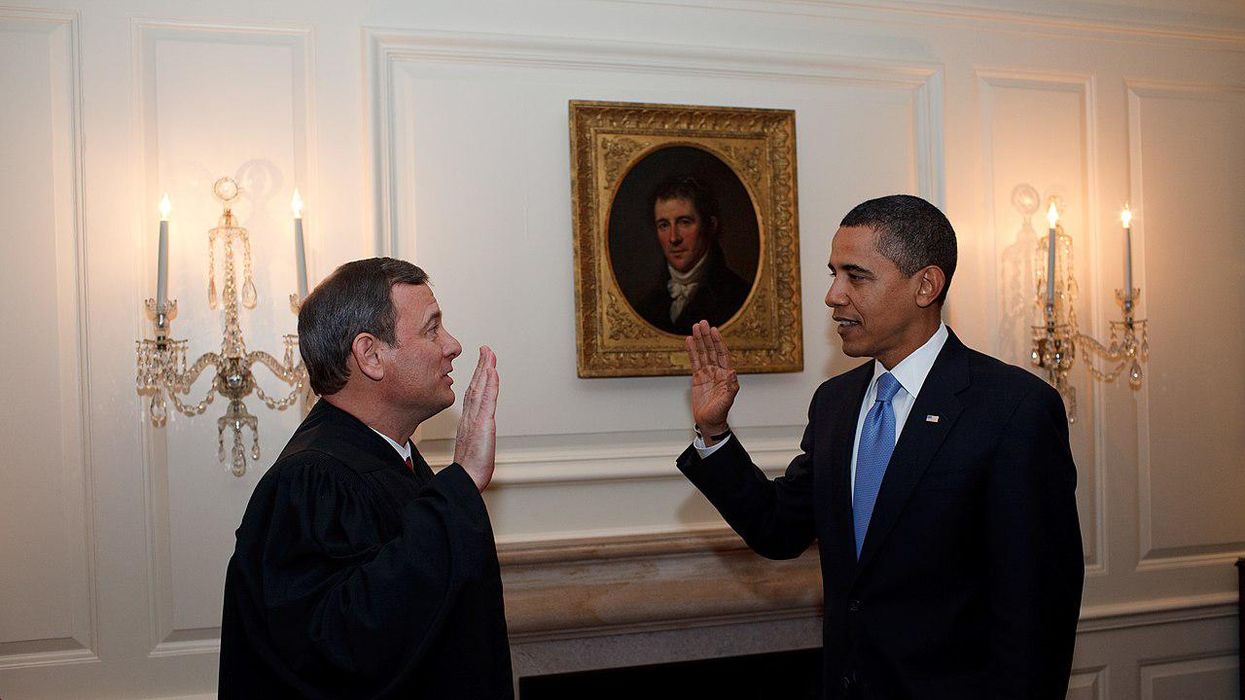Barack Obama was 'right' about the negative impact Citizens United would have: legal expert

April 14, 2022 | 09:04AM ETBank

When the U.S. Supreme Court handed down its 5-4 decision in Citizens United v. Federal Election Commission in 2010, then-President Barack Obama was an outspoken critic of the ruling — which, he warned, “will open the floodgates for special interests, including foreign corporations, to spend without limit in our elections.” Attorney Michael Waldman, president of the Brennan Center for Justice at the New York University Law School, looks back on Obama’s prediction in an article published by Brennan’s website on April 12 — arguing that Obama was right.
“Well, it’s been 12 years,” observes Waldman, a former speechwriter for President Bill Clinton. “A recent fine levied by the Federal Election Commission suggests that Obama was right — and that court rulings and administrative paralysis have made our elections ever more vulnerable. Canadian steel tycoon Barry Zekelman has agreed to pay $975,000 to the FEC after steering corporate donations to a pro-Trump super PAC, in violation of a federal prohibition on foreign influence in U.S. elections. Super PACs can receive unlimited funds, including from corporations, if the group’s spending is done ‘independently’ of the candidate it supports. This would have been illegal before Citizens United.”
The majority opinion in Citizens United was written by Justice Anthony Kennedy, a right-wing libertarian and Ronald Reagan appointee. Kennedy did a lot of good during his decades on the Supreme Court, often siding with the late Justice Ruth Bader Ginsburg when it came to gay rights and abortion rights. Kennedy’s pro-gay track record was evident in right-to-privacy decisions ranging from Lawrence v. Texas (which struck down an infamous Texas sodomy law) to Obergefell v. Hodges (which, in effect, legalized same-sex marriage nationwide). But Citizens United was one of Kennedy’s worst decisions.
The justices who joined Kennedy in Citizens United, all appointed by Republican presidents, were Samuel Alito, Clarence Thomas, the late Antonin Scalia and Chief Justice John Roberts. The four dissenters were Ginsburg, Stephen Breyer, Sonia Sotomayor and the late John Paul Stevens. While Ginsburg, Breyer and Sotomayor were appointed by Democratic presidents, Stevens was appointed by Republican President Gerald R. Ford — a moderate conservative who would be slammed as a RINO (Republican In Name Only) by today’s far-right Trumpistas.
Waldman, analyzing Citizens United’s impact, observes, “Typically, Zekelman’s largesse would have gone unnoticed and unpunished. But he was invited to dine with the president at Trump Hotel in thanks for his gift, and while there, he inveigled for eight minutes, urging Trump to tighten tariffs against his competitors. Other tablemates included two shady businessmen working with Rudy Giuliani. The conversation was recorded — oops! — and released as part of the impeachment proceedings in 2019. That’s Trump’s first impeachment — the one where he tried to extort (Ukrainian President Volodymyr) Zelensky into smearing Joe Biden in exchange for military aid against Russia. The insurrection was the second impeachment.”
Waldman wraps up his article by noting how “destructive” the “current world of campaign cash” can be.
“A previous Republican president identified the stakes,” Waldman notes. “At an earlier moment of corruption and reform, President Theodore Roosevelt vowed, ‘Sooner or later, unless there is a readjustment, there will come a riotous, wicked, murderous day of atonement.’ Now, that’s a tweet for the ages.”